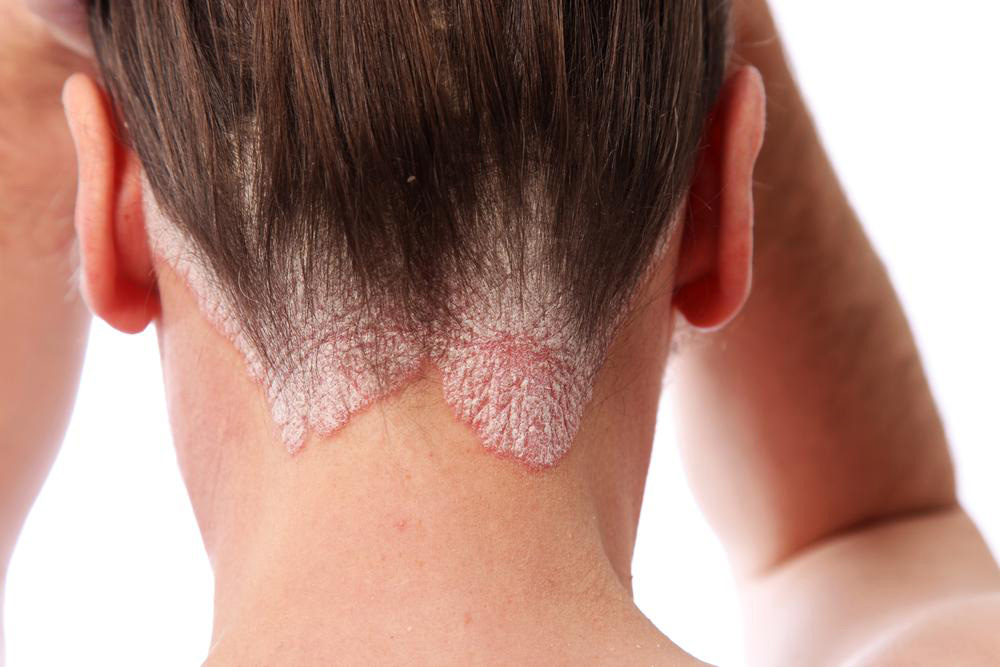The Ultimate Guide to Managing and Treating Scalp Psoriasis Effectively
Discover comprehensive strategies to manage scalp psoriasis effectively. Learn about symptoms, triggers, diagnosis, and the latest treatment options, including topical therapies, phototherapy, systemic medications, and lifestyle adjustments. Empower yourself with knowledge to improve skin health and quality of life with expert insights into this chronic skin condition.

Comprehensive Understanding and Strategies for Managing Scalp Psoriasis
Introduction to Scalp Psoriasis
Scalp psoriasis is a chronic, inflammatory skin condition that predominantly affects the scalp, manifesting as raised red patches covered with a silvery or white scale. While it primarily impacts the scalp, this condition can also extend to other parts of the body such as elbows, knees, palms, and soles, causing significant discomfort and aesthetic concerns. This condition is not contagious but can significantly impair an individual’s self-esteem and overall quality of life due to its visible symptoms and associated discomfort.
Understanding the pathophysiology of scalp psoriasis involves recognizing the underlying immune response that triggers an abnormal acceleration of skin cell production. Normally, skin cells are replaced every 28 to 30 days, but with psoriasis, this process accelerates to about 3 to 7 days, leading to a buildup of dead cells on the skin's surface. This rapid turnover results in the formation of thick, scaly plaques that can be itchy, sore, and sometimes bleed if scratched excessively. The exact cause of scalp psoriasis remains elusive; however, genetic predisposition combined with environmental triggers appears to play a critical role in its development.
Causes and Triggers of Scalp Psoriasis
Despite ongoing research, the precise etiology of scalp psoriasis is still not completely understood. Nonetheless, several factors are believed to contribute to its onset and flare-ups. Genetic predisposition is a significant component, with a family history increasing the risk significantly. Environmental triggers further exacerbate the condition. These include:
Physical injuries such as cuts, scrapes, or sunburn
Stress and emotional upheaval, which can weaken immune responses
Infections, particularly strep throat or other bacterial and viral infections
Weather changes, especially cold, dry climates that dry out the scalp
Use of harsh hair care products or chemicals
Certain medications, especially beta-blockers and lithium
Recognizing the Symptoms of Scalp Psoriasis
The hallmark signs of scalp psoriasis include well-defined red patches with a silvery or white scale. These patches often appear itch, and in some cases, they may bleed or become infected if scratched or irritated. The scales may be greasy or dry, and the patches can vary from small spots to extensive areas covering the entire scalp. Hair loss can occur temporarily in severe cases, especially if scratching leads to breaking hair shafts or secondary infections develop. Other associated symptoms include scalp tenderness, burning sensation, and persistent dandruff-like flaking which doesn't respond to regular shampoos.
Diagnosis of Scalp Psoriasis
Diagnosis typically involves a thorough clinical examination by a dermatologist, who will evaluate the physical appearance of the skin lesions. In uncertain cases, a skin biopsy may be performed to distinguish psoriasis from other similar skin conditions such as seborrheic dermatitis, dandruff, or eczema. The biopsy involves removing a small sample of skin tissue for microscopic analysis, which helps confirm the diagnosis and rule out other dermatological disorders. Early diagnosis is essential for effective management and preventing severe flare-ups.
Effective Treatment Options for Scalp Psoriasis
While there is currently no cure for scalp psoriasis, numerous treatment options are available to control symptoms and reduce flare-ups. The goal of treatment is to clear the scalp of plaques, reduce itching and inflammation, and prevent future outbreaks. Depending on the severity, treatments can be topical, systemic, or involve phototherapy.
Topical Treatments
Topical therapies are the cornerstone of managing mild to moderate scalp psoriasis. Commonly used medications include:
Topical Corticosteroids: These are the most effective anti-inflammatory agents used to reduce redness, swelling, and itching. They are available in various strengths, from mild to potent, and should be used under medical supervision to minimize side effects like skin thinning.
Salicylic Acid: This keratolytic agent helps loosen scales and promotes skin shedding, allowing other topical medications to penetrate more effectively.
Coal Tar Preparations: These have been used for over a century to reduce itching, scaling, and inflammation, although they may have a strong odor and can stain hair or skin.
Calcipotriol and Other Vitamin D Analogues: These help regulate skin cell growth and reduce inflammation, often used in combination with corticosteroids for better control.
Medicated Shampoos
Specialized medicated shampoos are vital for managing scalp psoriasis. Shampoos containing coal tar, salicylic acid, orselenuim sulfide can help reduce scaling and control dandruff. Regular use helps keep the scalp clean and free from excessive buildup of dead skin cells.
Phototherapy
In cases where topical treatments are insufficient, phototherapy — especially ultraviolet B (UVB) therapy — is a highly effective option. Controlled exposure to UVB light can slow down the rapid cell growth characteristic of psoriasis. This treatment is usually administered in clinics under medical supervision, with sessions scheduled multiple times per week. Phototherapy offers significant symptom relief and long-term control for many patients.
Systemic Treatments and Biologics
For severe or resistant cases of scalp psoriasis, systemic medications might be necessary. These include oral or injectable drugs such as retinoids, methotrexate, cyclosporine, and newer biologic agents targeting specific immune pathways involved in psoriasis. Biologics, like adalimumab, etanercept, and ustekinumab, have revolutionized psoriasis treatment by offering targeted therapy with fewer side effects. These options require regular monitoring and are typically prescribed by specialists to ensure safety and efficacy.
Natural and Lifestyle Adjustments
While medical treatments are essential, lifestyle modifications can significantly improve management. Patients are advised to:
Moisturize regularly with fragrance-free, calming emollients to reduce dryness and scaling
Avoid known triggers such as stress, harsh hair products, and environmental irritants
Maintain a healthy diet rich in anti-inflammatory foods, including omega-3 fatty acids, fruits, and vegetables
Practice good scalp hygiene by washing gently and avoiding excessive scrubbing
Wear protective headgear in harsh weather to prevent scalp dryness and irritation
Living with Scalp Psoriasis: Tips and Support
Managing scalp psoriasis requires patience and consistency. Patients should stay informed about their condition and collaborate closely with healthcare providers. Joining support groups and communities can provide emotional support, practical tips, and new treatment options. Effective stress management techniques, such as yoga or meditation, can also reduce the frequency and severity of flare-ups. It’s important to address the psychological impact of psoriasis, including self-esteem issues and social anxiety, by seeking counseling or therapy if needed.
Conclusion
Although scalp psoriasis poses a persistent challenge, advances in medical treatments and a comprehensive approach to management make it a manageable condition. Early diagnosis, tailored therapy, and lifestyle modifications can significantly improve quality of life. With ongoing research and improved therapies, patients can look forward to better control over their symptoms and a greater sense of confidence and well-being.





